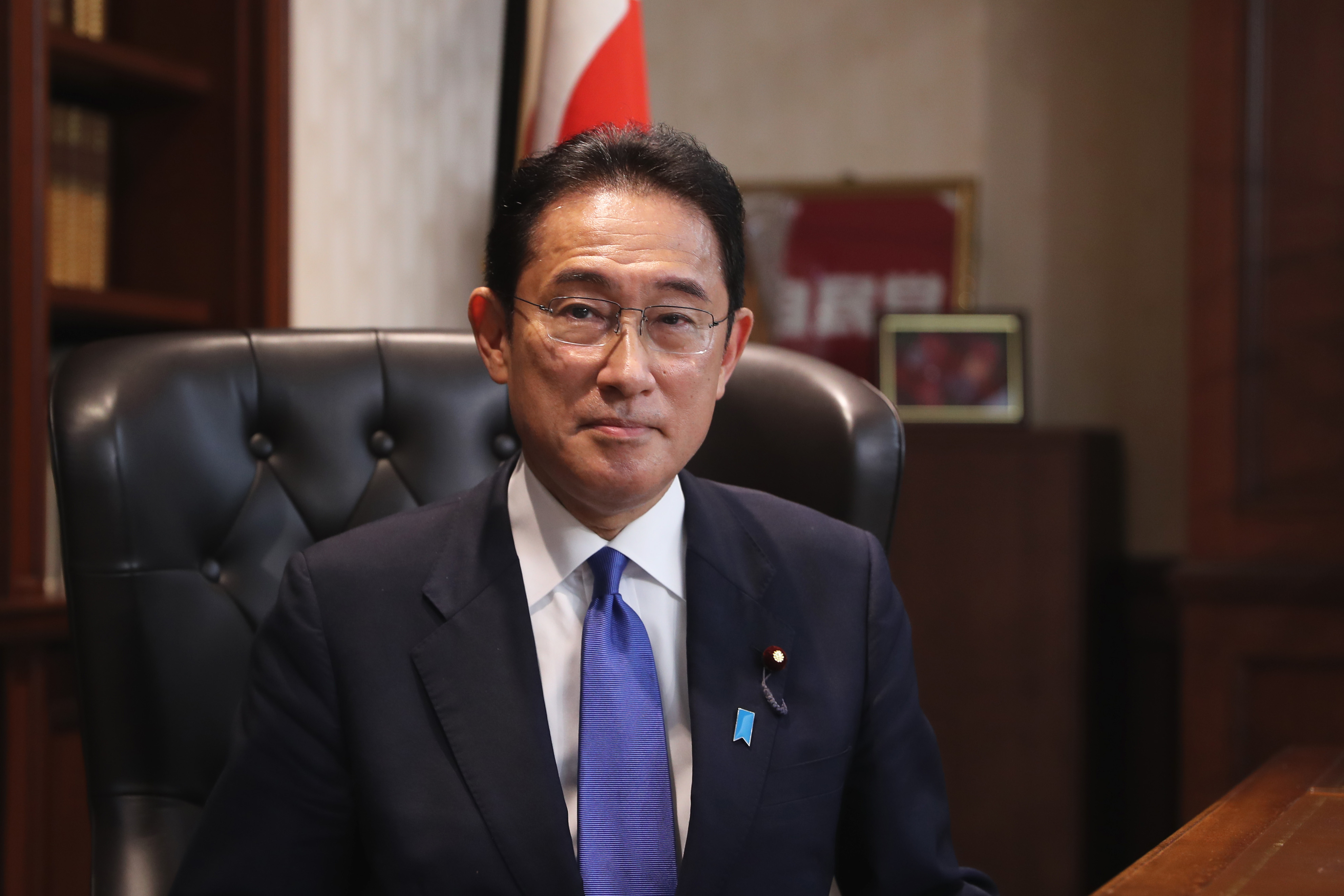

The outgoing Japanese Prime Minister Fumio Kishida emphasized the pressing need for reform in the United Nations Security Council (UNSC) during his speech at the 'Summit of the Future' in New York. He called for tangible actions to be taken to adapt the international organization to the current global landscape and safeguard the interest of present and future generations. The Indian government, led by Prime Minister Narendra Modi, has also been actively advocating for a permanent seat for India in a reformed UNSC. Japan and India have reaffirmed their commitment to working together towards strengthening the free and open international order based on the rule of law.
India's Permanent Membership Aspiration in the United Nations Security Council
The United Nations Security Council (UNSC) is the principal organ responsible for maintaining international peace and security. It consists of 15 members, including five permanent members with veto power: China, France, Russia, the United Kingdom, and the United States. India has long aspired to become a permanent member of the UNSC, citing its growing global influence and contributions to international peacekeeping efforts.
India's Advocacy for Reform
India has been actively advocating for a comprehensive reform of the UNSC, including the expansion of both permanent and non-permanent seats. The country believes that the current composition of the Council does not adequately reflect the changing global dynamics and the interests of developing countries.
In his speech at the recent 'Summit of the Future' in New York, Japanese Prime Minister Fumio Kishida emphasized the need for UNSC reform to address the challenges of the 21st century. He stated, "The world is changing at an unprecedented pace, and we must ensure that the UN remains a vital and effective body for maintaining international peace and security."
Prime Minister Narendra Modi has also been vocal in his support for India's permanent membership in the UNSC. He has argued that India's size, population, and economic power entitle it to a permanent seat at the Council's table.
Support from Other Countries
India's bid for permanent membership has received support from various countries, including Japan and Germany. The G4 group of nations (Brazil, Germany, India, and Japan) have been jointly advocating for the expansion of the UNSC to include permanent seats for all four members.
Challenges and Objections
However, India's aspirations face several challenges and objections. Some countries, such as Pakistan and China, have expressed concerns about India's veto power and its potential to dominate the Council. Others argue that expanding the UNSC would make it more unwieldy and less effective.
Top 5 FAQs
1. Why does India want to become a permanent member of the UNSC?
India believes that it has a significant role to play in maintaining international peace and security, and that a permanent seat on the UNSC would allow it to contribute more effectively to global affairs.
2. What are the main challenges to India's bid?
India faces objections from some countries, such as Pakistan and China, as well as concerns about the potential for a larger UNSC to become less efficient.
3. Which countries support India's bid?
India has received support from several countries, including Japan, Germany, and other members of the G4 group.
4. What is the current status of UNSC reform?
Discussions on UNSC reform have been ongoing for decades, but no concrete progress has been made.
5. What is the significance of Japan's support for India's bid?
Japan's support is significant because it demonstrates that a major developed country is willing to back India's bid for permanent membership.

The Pakistani government has come under heavy criticism after images claiming that their relief aid to Sri Lanka contained expired products went viral on social media. The supplies, intended for families affected by Cyclone Ditwah, were sent as emergency assistance but were found to have an expiry date of October 2024 printed on the packaging. This discovery has sparked outrage and disbelief, with netizens slamming the Pakistani authorities for their insensitivity and lack of attention to detail.

Thousands of passengers, including Tamilians and other Indian nationals, have been trapped at the Bandaranaike International Airport in Colombo for the past few days due to the devastation caused by Cyclone Ditwah. The Indian High Commission has reaffirmed its commitment to helping its neighbor by delivering urgent humanitarian aid and disaster relief through Operation Sagar Bandhu. Along with providing relief materials, the Indian government is also coordinating with the Sri Lankan government to facilitate the safe return of stranded passengers. Meanwhile, Prime Minister Narendra Modi has expressed sorrow over the loss of lives in Sri Lanka and has promised immediate support from India.

Amidst a fragile ceasefire, Israel carried out a targeted airstrike in the Lebanese capital of Beirut, killing five people and injuring dozens more. The strike was ordered by Israeli Prime Minister Benjamin Netanyahu and has drawn criticism from both the Hezbollah and the Lebanese President. This attack marks a significant escalation in tensions between Israel and Hezbollah, who have been in a state of war for almost two years.

Rajnath Singh spoke at a public event where he reinstated the key role that cultural bonds play in India's global hegemony and asserted Sindh's continued significance to Indian heritage Seeing the ever stronger connection between Sindh and India that has recently seen acknowledgement from the people of Pakistan-occupied Kashmir themselves, in the coming years boundaries could realign providing a pathway for Sindh to once again be a part of India.

Indian Prime Minister Narendra Modi arrived in Johannesburg for the G20 Leaders’ Summit in South Africa, where he will engage in bilateral meetings and participate in the IBSA Summit. This marks the first time the G20 is being held in Africa, with the focus being on building solidarity, equality, and sustainability. PM Modi also expressed his excitement to meet with the Indian diaspora in South Africa, highlighting their strong presence in the country. He will present India's perspective on global issues, emphasizing the country's vision of 'Vasudhaiva Kutumbakam' (the world is one family).

As India commemorates its Independence Day in 2025, it's important to share the spirit and pride of this special day with the world. From inspiring morning messages to beautiful patriotic images, this collection offers the perfect words and visuals to show your love for India. Whether it's through WhatsApp, Instagram, or other social media platforms, spread the joy and gratitude for your country on this momentous day.

As jihadists in Mali successfully choke off fuel supplies to the capital, Bamako, tensions rise as the junta struggles to maintain their power. This also sheds light on Russia's promise to provide security support in the region, bringing into question the effectiveness of their aid in combating terrorism. With dwindling resources and increasing instability, the situation in Mali remains uncertain.

The Al Falah University in Dhouj, Haryana is under the spotlight as the Enforcement Directorate launches an investigation into possible terror funding and financial irregularities related to the November 10 Delhi blast. A show-cause notice has been issued to the university which was the hub of the terror module and is unaccredited. Further details reveal how central and state agencies are also reviewing potential money exchanges and individuals associated with the attack. Additionally, the university's website has been taken down for further scrutiny.

Visual ethnographic researcher Amardeep Singh delivers a presentation at the 9th Military Literature Festival, shedding light on the political, social, and military aspects of Maharaja Ranjit Singh's reign. He emphasizes the plural and secular nature of the Lahore Darbar, which included Sikhs, Muslims, Hindus, Dogras, and Europeans in its military and civil institutions. Singh also details the campaigns led by General Hari Singh Nalwa and General Zorawar Singh, highlighting their successes in fortifying Punjab's north-western frontier and expanding control to Ladakh, Baltistan, and western Tibet. This presentation challenges the narrow religious definition often associated with Ranjit Singh's rule.

During his state visit to Bhutan, PM Modi met with both Bhutan's present and former kings, reaffirming India's commitment to its neighbor's development journey. Discussions covered key areas such as energy, capacity-building, connectivity, and defence, while joint activities and agreements highlighted the strong cultural and spiritual bonds between the two countries. This visit further strengthened the unique and longstanding partnership between India and Bhutan, setting the stage for future collaboration and mutual prosperity.